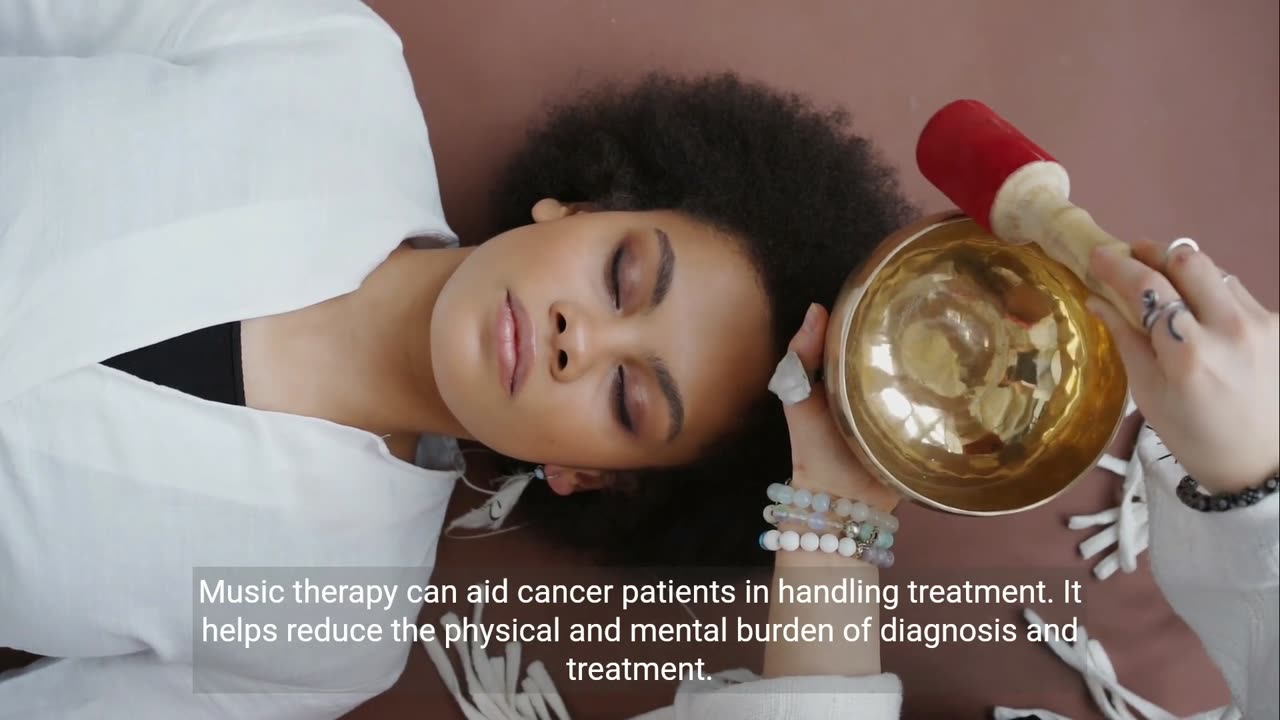Premium Only Content

6 Powerful Benefits Of Music Therapy
With the help of a licenced music therapist, music therapy is the scientifically supported use of music for physical or mental well-being enhancement.Music therapy techniques include singing, improvisation, making music alone or with a group, listening to music to trigger emotions, and more. There is also a tonne of research describing the possible advantages of music therapy in settings related to health and sickness. Here are six with strong supporting scientific research:
1. Could Support Treatment for Dementia
The emotional connection to music is huge, especially for those living with dementia," claims Krings. As a component of dementia care, music therapy may be used to foster relationships and meaningful peer interaction, lessen the depression and anxiety that are frequent in dementia patients, and ease some signs of disease progression.
2. Could lessen anxiety and depression
Consider the impact a single song may have on your mood. Along with other types of therapy, music therapy can be a complementing component of a mental health care strategy. In this situation, music serves as a reminder of who we are and where our ideals come from.
3. Could Reduce Stress
Consider the emotions you have while listening to your favourite music. Happy? At ease? slightly lighter? Your stress levels can significantly change when you listen to music on its own (not as part of music therapy).
4. May Enhance Functioning in Parkinson's Patients
According to the Parkinson's Foundation, Parkinson's disease is a degenerative neurological illness that affects movement and coordination. According to a systematic review, music therapy may be used as an additional treatment for Parkinson's disease. It has a number of potential advantages, including improved motor function, communication, swallowing, and breathing, as well as quality of life and mood. Group singing is a music therapy tool that may help to improve breathing, swallowing, and vocal abilities.
5. Could Aid Cancer Patients in Handling Treatment
Being diagnosed with cancer and undergoing treatment may be quite taxing on the body and mind. Some of the load may be reduced through music therapy.
6. Could lessen suffering at the end of life
For a hospice patient who is preparing for death, music therapy can be used in a variety of ways. When a patient is grieving, music can be there to support them and act as a coping strategy, or it can be a happy, active time of music-making with the patient and their families.
-
 LIVE
LIVE
Wendy Bell Radio
6 hours agoThe Party's Over
12,828 watching -
 45:46
45:46
Randi Hipper
1 hour agoBitcoin CRASHES to 3 month low! Crypto investors BEWARE
6.48K1 -
 LIVE
LIVE
Conspiracy Pilled
12 hours agoAvowed
82 watching -
 5:31
5:31
Adam Does Movies
23 hours ago $3.00 earnedThe Monkey Movie Review - This Is From The Longlegs Director?
32.9K3 -
 14:47
14:47
Tactical Considerations
15 hours ago $3.99 earnedClassic Precision Woox Furiosa Bergara Premier 6.5 CREED
36.4K1 -
 40:44
40:44
Rethinking the Dollar
1 day agoDonald & Elon Head to Fort Knox—What Are They Planning?
25.6K24 -
 1:10:15
1:10:15
MTNTOUGH Fitness Lab
1 day ago"My Baseball Career Wasn't Enough": Adam LaRoche's Life-Changing Anti-Trafficking M
20.8K4 -
 1:00:12
1:00:12
The Tom Renz Show
20 hours agoComing to America & Coming to Christ
48.8K7 -
 1:12:21
1:12:21
TheRyanMcMillanShow
1 day ago $0.58 earnedDebbie Lee: Mother of First Navy Seal Killed In Iraq, Marc Lee - RMS 019
22.2K1 -
 38:05
38:05
Uncommon Sense In Current Times
17 hours ago $2.38 earnedIs Israel Being Forced Into a Bad Deal? David Rubin Exposes the Truth | Uncommon Sense
35K17